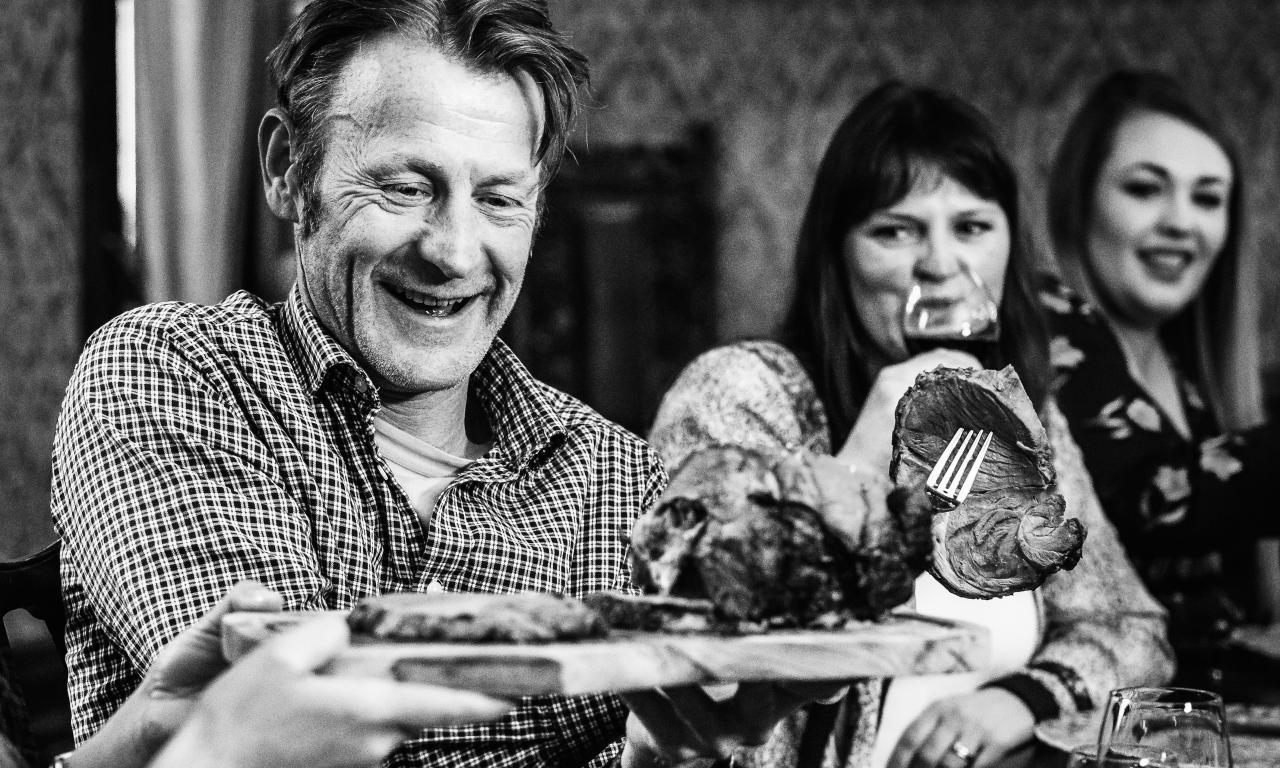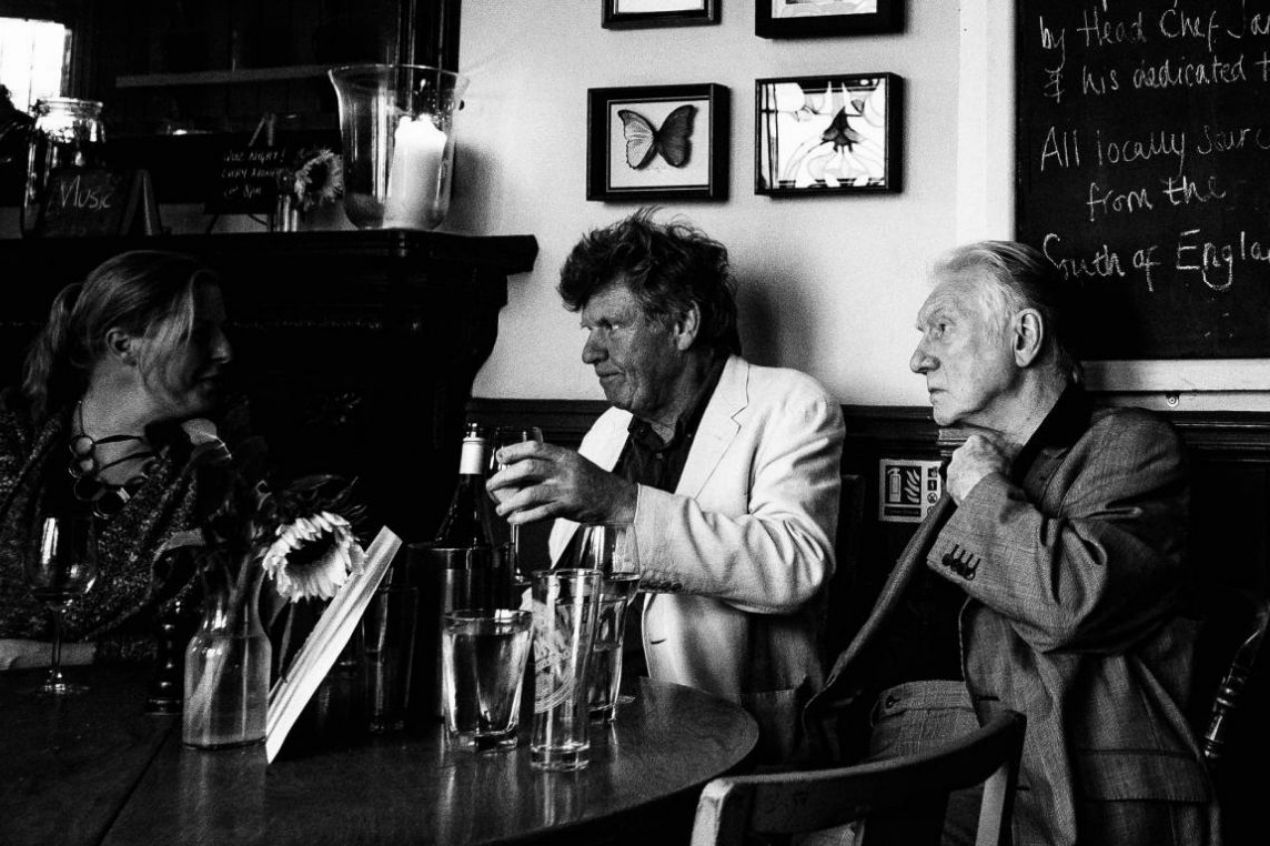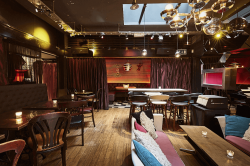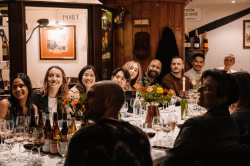Features
What The British Say, And What They Actually Mean
On this page you will find, what are the top five classic double speak ‘sayings’ in restaurants, bars or pubs in the British capital.
It’s not just Fred Astaire and Ginger Rogers who had problems understanding what each other were saying - remember those classic lines from the song: “You like potato, and you like potahto, You like tomato and you like tomahto, Potato, potahto, tomato, tomahto - Let's call the whole thing off!”
They were teasing each other over their different American regional accents and whilst similarly one town or city in the UK can use words and dialects that are a million miles away from each other, the Brits are on another level when it comes to saying things that they don’t actually mean.
Not that the average Brit would admit to such skulduggery. They prefer to see it as being “subtle or “displaying the full use of the rich English language”. Either way it’s still very confusing for anyone visiting London, or the UK, for the tenth or twentieth time, never mind the first.
Here are five of the most classic double speak ‘sayings’ you are likely to come across if you’re out and about in restaurants, bars or pubs in the capital. You will probably experience a whole lot more.
It’s lovely thank you
This is the British at their best - and most frustrating. They simply have been brought up by their parents, grandparents and every teacher in every school not to complain. The whole British stiff upper lip is still very much alive and kicking.
It usually works like this. As soon as a meal is served to a guest in a restaurant, they will wait until the waiter has left before telling their fellow guests all the things that are wrong with it. The fact it’s too cold, burnt, not cooked the way you asked for it, and best of all - it’s completely the wrong meal that was ordered.
But when the waiter comes back five minutes later to ask how everything is, the guests - who have been equally complaining about their own dishes - all say in unison: “It’s lovely thank you.”

Yes, it’s fine, thank you.
This really is an extension to the “It’s lovely thank you” but particularly applies to ordering wine. You know that awkward moment when you have chosen the wine and the sommelier has returned to the table to, first, painstakingly open it in front of you, before ever so diligently pouring you a tiny amount to taste.
In that instance time stops still and you can feel every head and pair of eyes in the restaurant have turned towards you to see if you “do it right”. Yes, knowingly taste the wine by first smelling it, for some strange reason, and then swirling it around your mouth, before proclaiming, with the utmost confidence: “Yes, it’s fine - thank you”.
To which there is a collective sigh of relief in the room that you’re not going to say there is something wrong with it and ask to send it back. Heaven forbid.
Then when everyone has returned to their own business and are happily chatting away, you turn to your fellow guests and say: “Sorry. It’s horrible. Let’s order something different when we get the next bottle.”
It’s my round
Now this is one of the more peculiar and yet fascinating insights into the British psyche. You are out with a group of friends, which could be the closest and dearest people you know, and notice there is someone who is not paying their pay and stepping in when it is their turn to get a round of drinks in. Rather than simply give them a nudge and say, “It’s your round”, the Brits are far more forgiving - and baffling - than that. They’re much more likely to say, “It’s my round”, and quickly jump to their feet, as they know it does two things:
Get out of the embarrassment of having to tell a dear friend that they are being tight with their money and not paying their way. But at the same time doing exactly that by standing up and offering to get what everyone knows is that person’s round, but you are going to go ahead and pay for it anyway. That’s the Brits all over.

Sorry, please, you go first
This usually occurs at a busy bar when two people are side by side jostling to catch the bartender’s eye. It might involve holding out a £10 note, or leaning across the bar just so your shoulder is just an inch or two further forward than the person next to you. But as soon as the bartender comes over and says, “Who’s next?” both participants will defer to the other and say “please, after you”. And then stand in enraged, but polite silence, as the other person smugly waits and then pays for their drinks.
I’ll get this
Now we come to the end of the meal and arguably the most awkward moment of them all - well, at least it is if you’re British. The bill (not the check). This is when everyone’s anxieties, and the need to be seen to be doing the right thing, comes into play. As the bill sits on the table one of the guests will declare, “I’ll get this,” with such authority there appears to be no doubt about their motives.
But what they are actually are doing is just making the first move in what is well rehearsed chain of events,. Their initial offer to settle the bill will be quickly followed by their fellow guests saying, “No, we’ll share it”. After a bit of to-ing and fro-ing and faked determination on behalf of the initial “bill payer” to be true to their words, everyone gets their wallets and purses out and the bill is split. And everyone can relax. The meal is over.

















